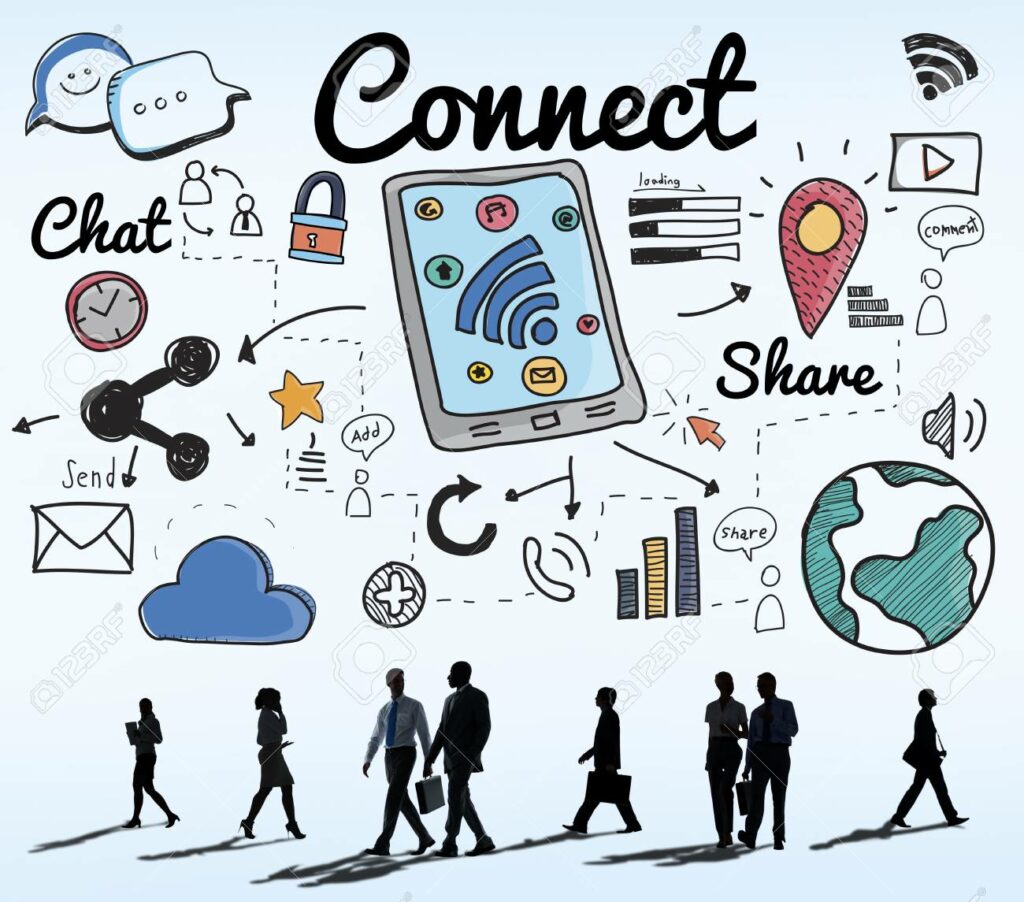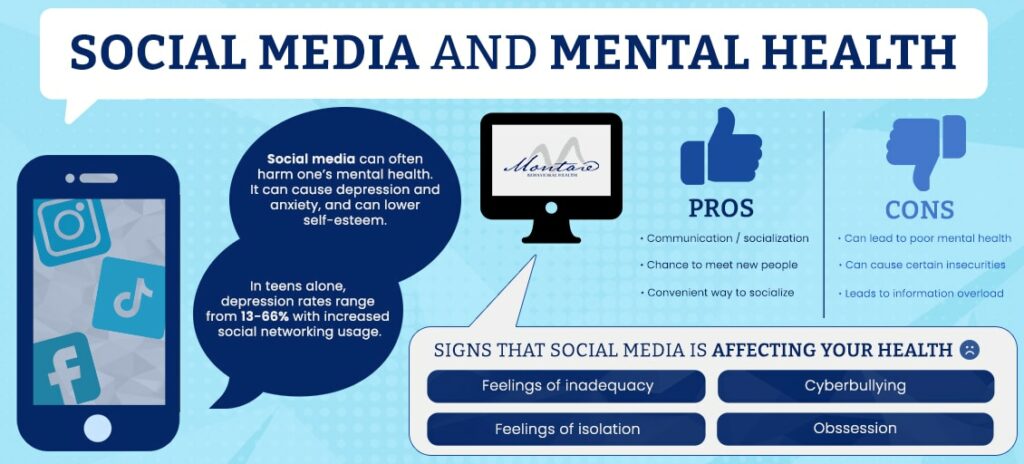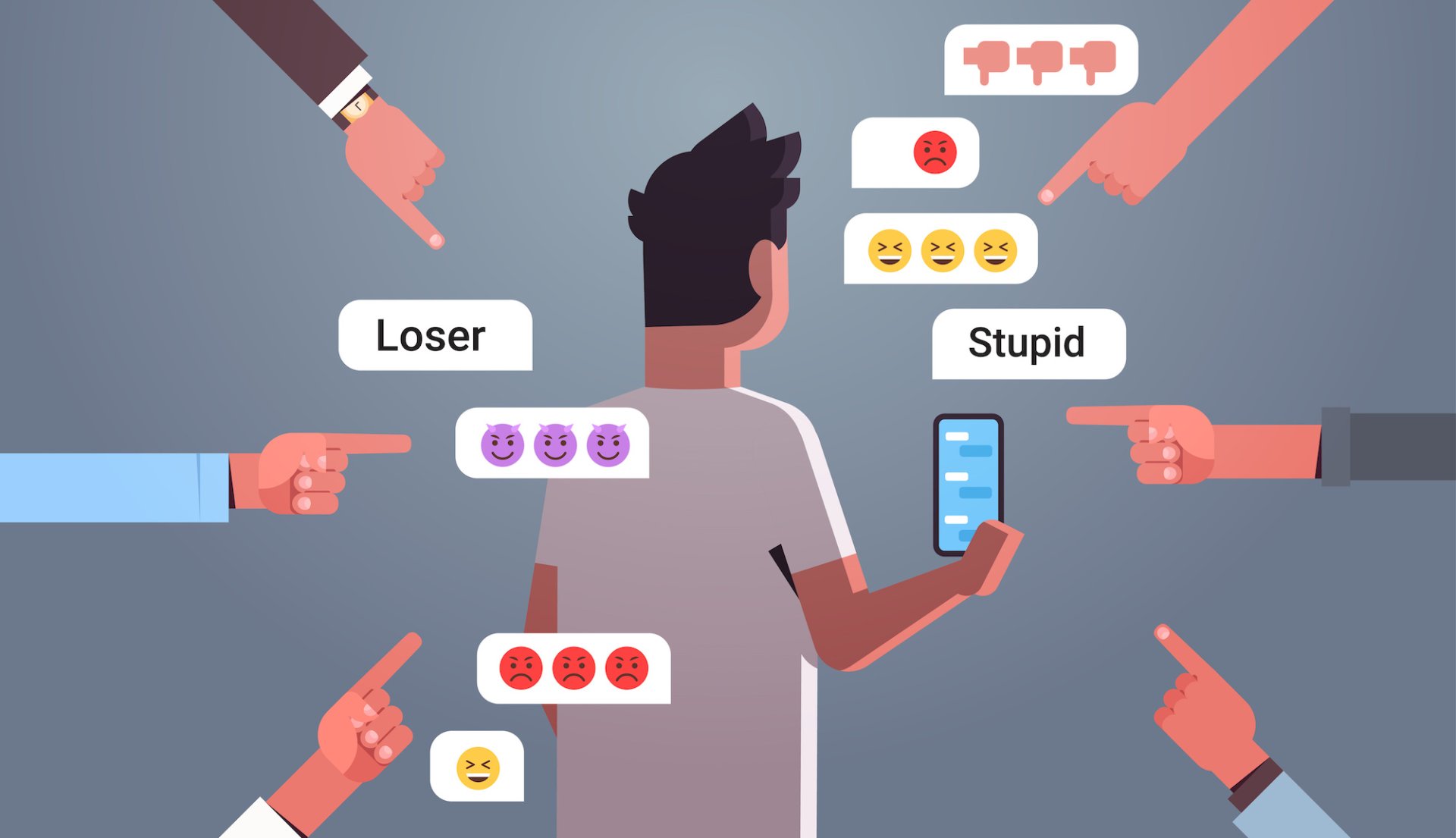Over the last two decades, there has been a dramatic increase in the use of technology and social media among teenage students. In fact, “The Pew Research Center (2013) reported that 93 % of young people use the Internet at least occasionally.” Wu et al., “A Systematic Review of Recent Research on Adolescent Social Connectedness and Mental Health with Internet Technology Use.” Students have used a variety of ways to connect to their peers digitally. There has been great debate about whether Social Media use amongst teens develops a sense of social connectedness, establishing positive mental health, or whether social media use leads to loneliness, depression and social anxiety. The literature suggests that technology and social media can be a positive factor in students’ well-being or a negative influence on their mental health: it all depends on how social media and technology are used and how connected the student is to friends and family in the real world.
For all individuals, particularly teenagers, being socially connected is vital to their health, lifestyle, personal development, and self-esteem. When social media is used positively, it contributes to social connectedness and improves students’ mental well-being. If students display negative behaviours such as compulsive Social Media use or excessive gaming, the digital world can become unhealthy. The Article: A Systematic Review of Recent Research on Adolescent Social Connectedness and Mental Health with Internet Technology Use by Yi-Ju Wu1 • Corliss Outley1 • David Matarrita-Cascante1 • Theresa Pesl Murphrey2, states that “Although Internet technology might provide additional opportunities for adolescents to seek emotional connection with friends and school, this study suggests that real-life social skills are still a necessary foundation for them to use technology beneficially.” Wu et al., “A Systematic Review of Recent Research on Adolescent Social Connectedness and Mental Health with Internet Technology Use.” In a nutshell, the higher level of positive social connectedness in the online and real-world leads to a dramatic decrease in feelings of depression, loneliness and anxiety.

Weidman, Fernandez, Levinson, Augustine, Larsen, and Rodebaugh wrote a paper discussing how introverts use Social Media to compensate for their social anxiety and lack of interpersonal skills. They determined that “by eliminating the reliance on non-verbal cues and the spontaneity of face-to-face communication, the Internet could plausibly facilitate self-disclosure and intimate socialization among individuals for whom face-to-face communication provokes anxiety and concern over evaluation.” Weidman et al., “Compensatory Internet Use among Individuals Higher in Social Anxiety and Its Implications for Well-Being.” Introverted students displayed stronger self-esteem and fewer symptoms of depression when they communicated online with friends instead of in person.

Parental guidance and involvement are essential in helping high school students navigate social media and proper technology use. The convenience of social media can have both positive and negative elements. Students can find it difficult to distance themselves from bullying because it is easy for a person’s social network to transfer into cyberspace. Parental guidance is essential for positive online experiences because “The virtues of convenient accessibility to friends brought by Internet technology are thus both positive and negative.” Wu et al., “A Systematic Review of Recent Research on Adolescent Social Connectedness and Mental Health with Internet Technology Use.”

Wu, Yi-Ju, Corliss Outley, David Matarrita-Cascante, and Theresa Pesl Murphrey. “A Systematic Review of Recent Research on Adolescent Social Connectedness and Mental Health with Internet Technology Use.” Adolescent Research Review 1, no. 2 (June 1, 2016): 153–62. https://doi.org/10.1007/s40894-015-0013-9.
Weidman, Aaron C., Katya C. Fernandez, Cheri A. Levinson, Adam A. Augustine, Randy J. Larsen, and Thomas L. Rodebaugh. “Compensatory Internet Use among Individuals Higher in Social Anxiety and Its Implications for Well-Being.” Personality and Individual Differences 53, no. 3 (August 1, 2012): 191–95. https://doi.org/10.1016/j.paid.2012.03.003.
Helping Students Deal With Cyberbullies | NEA
Connect Social Media Social Networking Concept Stock Photo, Picture and Royalty Free Image. Image 55778118. (123rf.com)Is Social Media Affecting Your Mental Health? | Clay Behavioral Health Center (ccbhc.org)
Leave a Reply